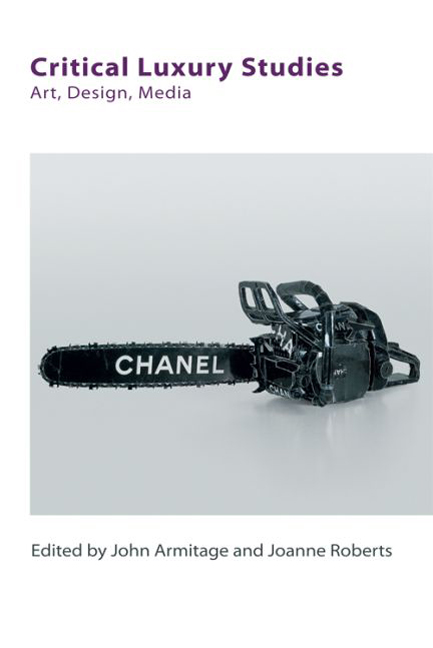1 - Critical Luxury Studies: Defining a Field
Published online by Cambridge University Press: 23 September 2017
Summary
In this opening chapter of Critical Luxury Studies: Art, Design, Media, our first task is to introduce and define the philosophical concept of luxury and the challenges of studying this seemingly ubiquitous idea. Using the example of the ‘city of pigs’, from Plato's The Republic, we delineate the key themes of luxury studies, including beliefs about necessity and morality.
Of course, there is an extant and contemporary literature concerning the investigation of luxury. Our second task is therefore to consider this literature. Beginning with a survey of the concept of luxury in Western thought, we then document its ‘moralisation’ and ‘de-moralisation’, before reflecting on luxury in its historical context from the eighteenth century onwards. Subsequently, we examine the contemporary literature on luxury, which is primarily concerned with luxury brand management.
Yet, as indicated in the title of Critical Luxury Studies: Art, Design, Media, ours is a critical view of luxury. Our third task, therefore, is to set out our own perspective on what we call ‘critical luxury studies’. Indeed, our project is nothing less than an attempt to define an entirely new field of research. We begin by differentiating the idea of critique from ostensibly similar terms, such as criticism. This is important because, for us, critical luxury studies is not a static entity but a dynamic process. Moreover, critical luxury studies has a specific political and philosophical dimension that is crucially linked to the cultural politics of academic disciplinarity. For us, it matters a great deal that critical luxury studies is defined in relation to the important disciplines of art, design and media. For these reasons, we are concerned with luxury as ‘cultural capital’ and with the ever-shifting attitudes towards luxury as both a subject of study and a socio-cultural practice. These subjects and practices are especially important in a world of ‘austerity’ where food banks and Ferraris coexist in close proximity. None of this is meant to deny the pleasure we all feel with regard to the experiences associated with luxuries, such as viewing an Andy Warhol diamond dusted screen print, wearing a Chanel dress or owning an exceptionally well designed Patek Philippe timepiece.
- Type
- Chapter
- Information
- Critical Luxury StudiesArt, Design, Media, pp. 1 - 22Publisher: Edinburgh University PressPrint publication year: 2016



